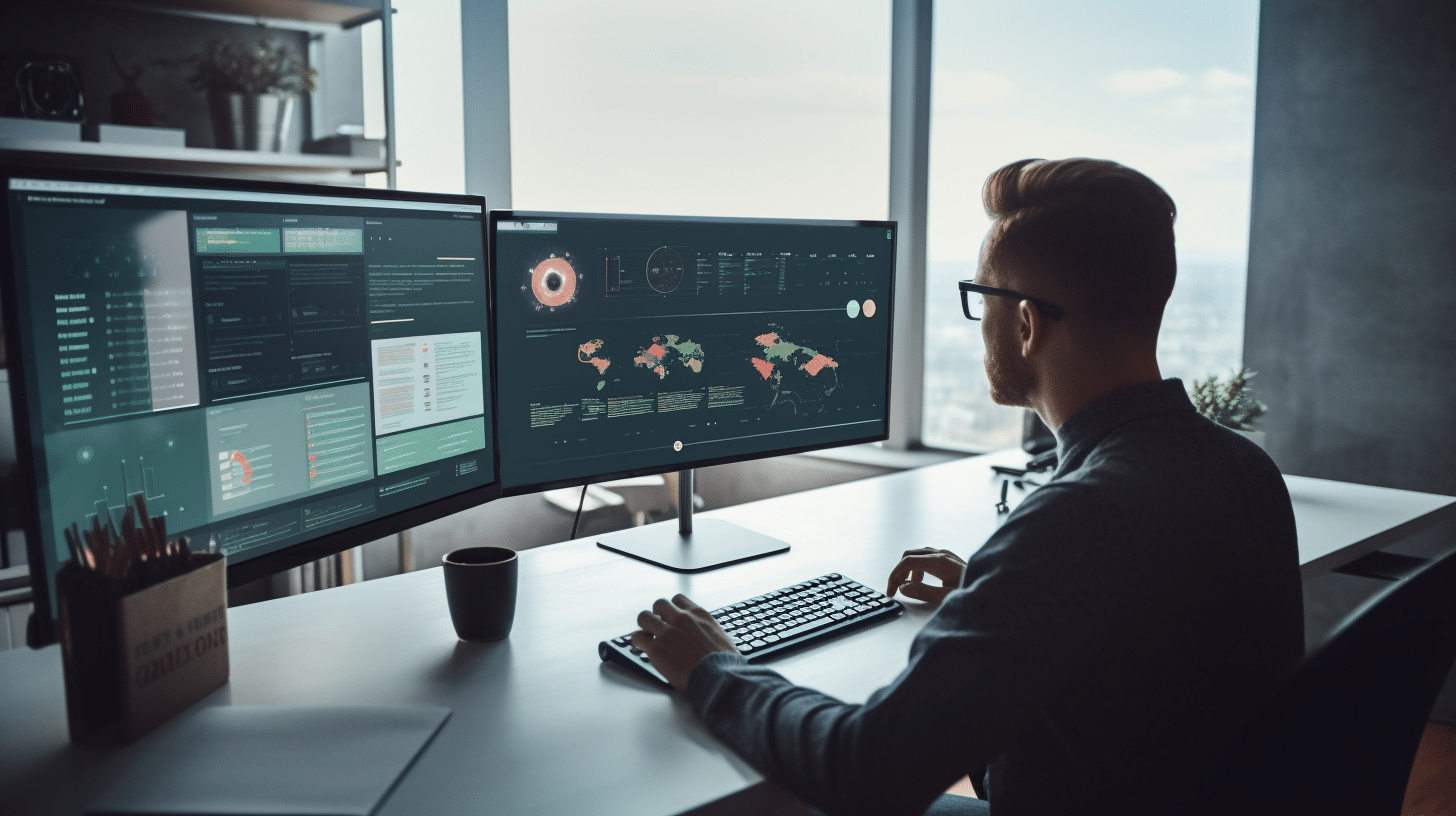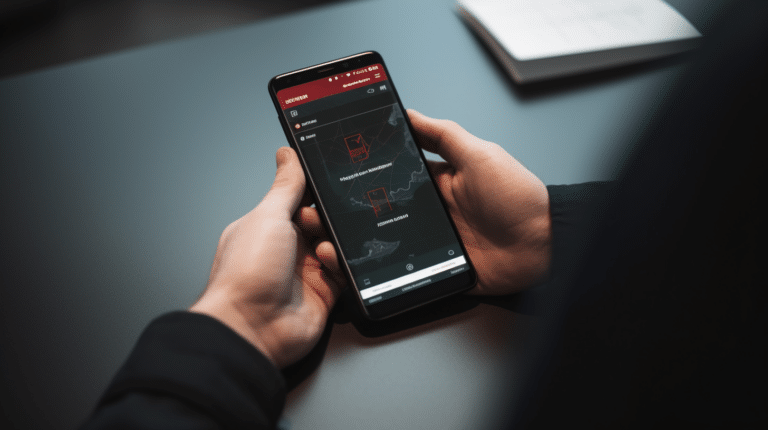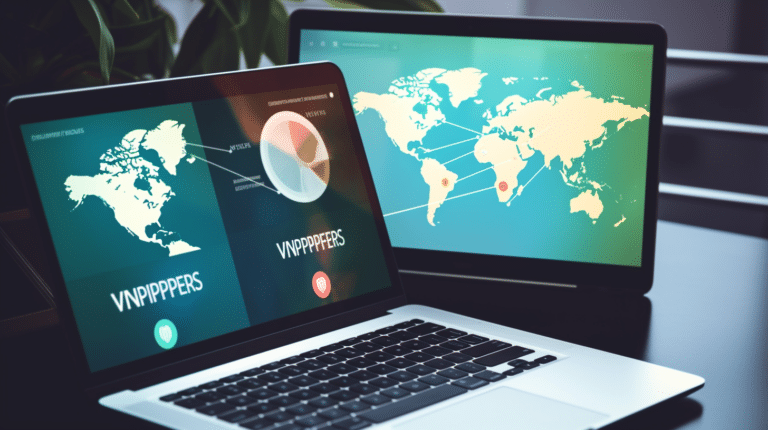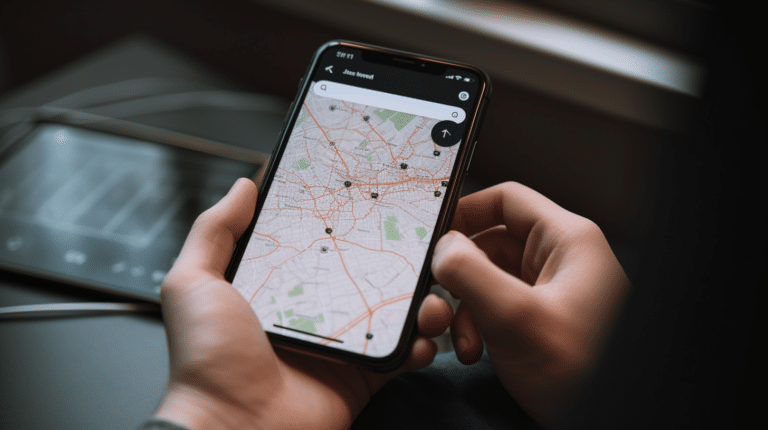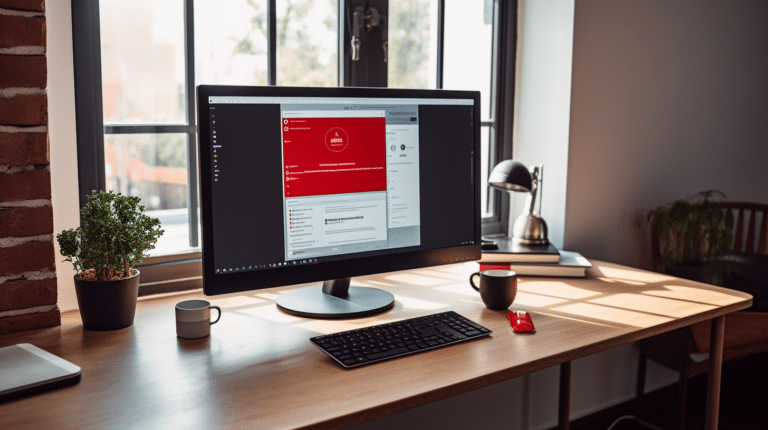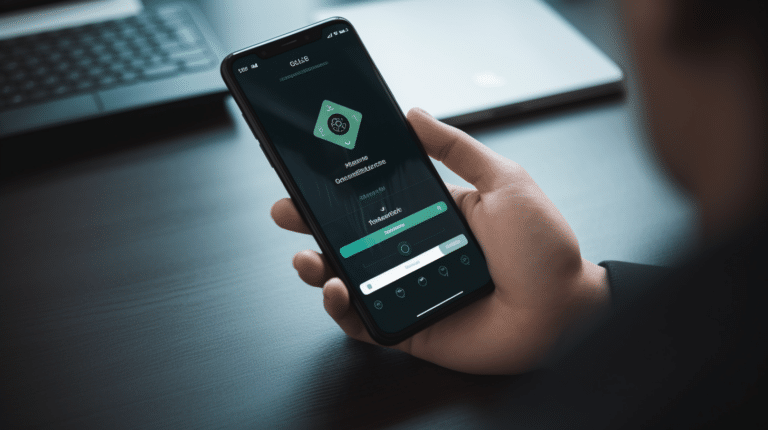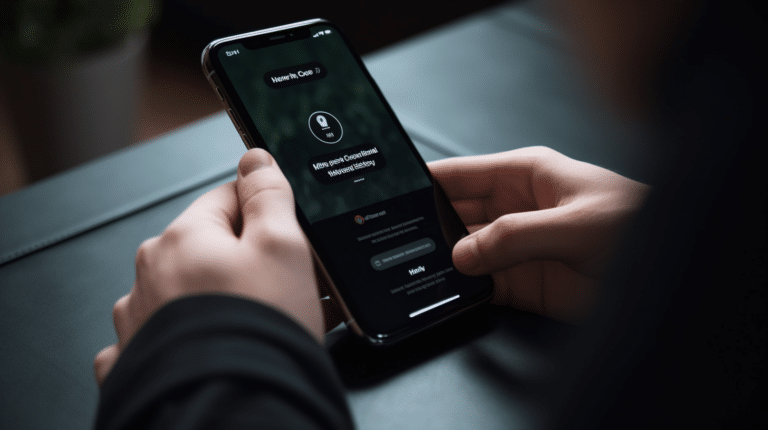The use of VPNs (Virtual Private Networks) has gained popularity as internet users become more aware of their online privacy and security. A VPN allows you to create a secure connection to another network over the internet, hiding your IP address and encrypting your data. The question many people face is whether or not to use a VPN all the time.
There are certain scenarios where the use of a VPN is highly recommended, while at other times, it may not be as necessary. By assessing the security benefits, how VPNs affect your internet connection, and considering the type of online activities being carried out, you can make a more informed decision about whether to use a VPN all the time or only in specific situations.
Key Takeaways
- VPNs offer increased privacy and security for your online activities, but their necessity depends on individual situations.
- Always using a VPN can affect your internet connection speed and may not be necessary for all types of online activities.
- Evaluate the benefits and drawbacks of using a VPN all the time, and choose the right VPN to fit your needs.
What Is a VPN
Understanding the Fundamentals of VPNs
A VPN, or Virtual Private Network, is a service that creates an encrypted connection between your device and the internet. This encrypted tunnel ensures that all data packets transmitted between your device and the VPN server are secure and private. By hiding your IP address, VPNs make it difficult for third parties to track your online activities and access your personal information.
VPNs work by using protocols to establish a secure connection, with common protocols including HTTP, HTTPS, and SSL/TLS. These protocols create an environment where data is encrypted and authenticated, ensuring that only authorized parties can access the information being transmitted.
The Role of VPNs in Online Privacy
VPNs play a critical role in protecting your online privacy. When you connect to a VPN, your internet traffic is routed through the VPN server, masking your true IP address. This makes it more challenging for hackers, government agencies, and other online snoopers to monitor your activity.
Moreover, because VPNs encrypt your data, third parties cannot easily intercept or decipher your online communications. This added layer of security is especially important for those who frequently use public Wi-Fi networks, which are often unsecured and vulnerable to cyberattacks.
In addition to protecting your privacy, VPNs can also help you bypass geo-restrictions and content blocks enforced by websites or streaming services. By connecting to a VPN server in another country, you can access content that may be unavailable in your region.
In conclusion, using a VPN is an effective way to enhance your online privacy and security while also providing the ability to overcome geo-restrictions. However, it’s important to carefully consider whether or not to use a VPN all the time, as there may be situations where it’s not necessary to keep it on constantly.
The Security Benefits of Using a VPN All the Time
Importance of Encrypted Data
Using a VPN all the time can significantly enhance your online privacy and security. One of the main reasons people use VPNs is to encrypt data while browsing the internet. Encryption makes it difficult for hackers or other malicious actors to access your personal data or intercept sensitive information.
When you use a VPN, your internet traffic is routed through a secure, encrypted tunnel, which protects your data from potential eavesdroppers and man-in-the-middle attacks. This can be especially important when connected to public Wi-Fi networks, where your information is more vulnerable to potential attacks.
Protection Against Cyber Attacks
Using a VPN all the time can also help protect you against various forms of cyberattacks. Hackers, government agencies, and other third parties can exploit security vulnerabilities in your connection to gain access to your personal information and sensitive data. By encrypting your online traffic, VPNs enhance your security by making it much harder for these malicious actors to breach your devices or steal your data.
In addition to encryption, many VPN services also offer features like firewalls, which can further increase your online safety by blocking known malware and phishing websites.
Using VPNs for Safe Online Banking
One specific area where using a VPN all the time can be beneficial is during online banking. Accessing your financial accounts and conducting transactions online can expose your sensitive information, like login credentials and account numbers, to potential threats.
A VPN creates a secure connection between your device and the online banking website, ensuring that your data remains private and encrypted. This reduces the risk of hackers or other malicious actors accessing your financial information, helping to prevent identity theft and unauthorized transactions.
In summary, using a VPN all the time can provide a range of security benefits, such as keeping your data encrypted, protecting against cyberattacks, and ensuring safe online banking practices. By proactively maintaining your online privacy and security, you can minimize the risk of data breaches and safeguard your sensitive information from potential threats.
How VPN Affects Your Internet Connection
VPNs and Internet Speed
A VPN, or virtual private network, can provide an additional layer of security and privacy for your internet connection. However, using a VPN may also affect your internet speed. One major factor influencing this change in speed is the encryption used by VPNs to secure your connection. The security protocol defining the type of encryption employed plays a crucial role in determining how much your internet speed might decrease while using a VPN.
While VPNs can slow down your connection, it’s essential to note that this decrease is not always significant and may not be noticeable for every user. The actual impact on your internet speed depends on various factors, including the VPN service you choose, the servers you connect to, and the distance between you and those servers. To optimize your internet speed while using a VPN, consider selecting a provider with a wide range of servers and locations, and use the closest server available to your physical location.
The Effect of VPN on Bandwidth
Using a VPN can also have an impact on your bandwidth. Some internet service providers (ISPs) implement bandwidth throttling, which involves restricting the amount of data that flows through your connection and could lead to slower internet speeds. A VPN can help prevent this throttling by encrypting your data and masking your activities from your ISP.
On the other hand, VPNs can also consume some of your bandwidth due to the encryption process, which adds extra data to your connection. This additional data usage can potentially increase the likelihood of reaching your bandwidth limit, especially if you are on a limited data plan. In most cases, however, the benefits of using a VPN for security and privacy outweigh the potential bandwidth concerns.
In conclusion, while a VPN’s impact on your internet connection can influence both speed and bandwidth, the potential drawbacks can often be mitigated by choosing a reputable VPN provider and connecting to a nearby server. The enhanced privacy and security provided by VPNs make them a valuable tool for maintaining a safe and anonymous internet experience.
VPN and Online Activities
VPNs for Browsing and Streaming
A Virtual Private Network (VPN) can ensure privacy and security by encrypting your browsing data and masking your IP address. This makes it difficult for both malicious actors and your internet service provider (ISP) to track your online activities.
Using a VPN is especially beneficial when accessing websites that may be blocked or have region-specific content. Many streaming services like Netflix, Hulu, and Amazon Prime limit their content libraries based on geographical location. A VPN can help bypass these restrictions, giving you access to additional movies and TV shows. However, note that some streaming services actively try to block VPN users, so not all VPNs may work for this purpose.
Using VPN for Online Shopping and Transferring Money
When shopping online or transferring money, your sensitive financial information is at risk of being intercepted by cybercriminals. VPNs provide an additional layer of security that can keep your credit card details, banking information, and personal data safe from hackers.
Using a VPN while conducting financial transactions can also help protect against identity theft and other online threats. It’s essential to choose a reliable and trustworthy VPN provider, as not all VPN services offer the same level of encryption and security features. Remember to always use a secure connection, and never conduct financial transactions on public Wi-Fi networks without a VPN.
In summary, a VPN offers numerous advantages for browsing, streaming, shopping online, and transferring money. Protecting your privacy and data should be a priority, and using a VPN is an effective way to achieve this. However, it’s crucial to select a reputable provider to ensure you receive the highest level of encryption and protection for your online activities.
Choosing the Right VPN
The Importance of No-Logs Policy
A crucial aspect to consider when choosing a VPN is their no-logs policy. A no-logs policy refers to the commitment a VPN provider takes to not monitor, store, or share any of your online activity or personal information. This is essential for maintaining your privacy and security while using a VPN service.
Some reputable VPN providers with strict no-logs policies include NordVPN, ExpressVPN, and IPVanish. These providers prioritize protecting your privacy, ensuring your data remains safe and untraceable.
Evaluating VPN Service Providers
There are several factors to evaluate when choosing a VPN service. Here are a few key aspects to consider:
- Speed: VPNs can slow down your internet connection. Be sure to choose a VPN with minimal impact on your connection speeds. Providers like NordVPN, ExpressVPN, and IPVanish are known for their high-speed capabilities.
- Virtual Location: The number of servers and countries offered by a VPN service affects its performance and versatility. Look for a VPN provider that offers a wide range of virtual locations to choose from, ensuring optimal performance and access to the content you need.
- Kill Switch Feature: In case the VPN connection drops, a kill switch protects your data by automatically disconnecting the internet connection. Premium VPNs, such as NordVPN and ExpressVPN, offer this feature in their VPN apps and VPN routers.
- Device Compatibility: Ensure the VPN app is compatible with the devices you plan to use it on. Most top-tier VPN services offer apps for various platforms, including Windows, macOS, Android, and iOS.
- Pricing: Consider your budget when selecting a VPN service. Many providers offer competitive pricing and discounts on longer subscription plans. It’s essential to balance affordability with the quality of service provided.
By considering the no-logs policy, evaluating various VPN service providers, and thoroughly analyzing their features, you can confidently choose the right VPN that meets your needs for private browsing and online security.
The Drawbacks of Using VPN All the Time
While using a VPN can provide an additional layer of privacy and security, there are several drawbacks to always having it turned on. One major issue is the impact on internet speed. A VPN introduces an extra layer between you and the internet, inevitably causing a slower browsing experience, as there are more hoops for data to jump through before reaching you 1.
Another drawback is the possibility of data leaks. Although VPNs are designed to keep your data secure, some services may not be as reliable as they claim, allowing your personal information to be exposed. Even highly reputable VPNs can sometimes experience data leaks 2, so it’s important to choose a service with robust safety features such as a kill switch. A kill switch automatically disconnects you from the internet when your VPN connection drops, preventing your real IP address from being exposed.
Moreover, an always-on VPN can cause issues with certain websites and services, which may block or restrict access if they detect VPN usage. This can create an inconvenient user experience, forcing you to disconnect from the VPN in order to access these sites. An always-on VPN can also increase battery consumption on mobile devices, making it essential to find a VPN service that has been optimized for energy efficiency 3.
Despite these drawbacks, using a VPN for sensitive tasks or when connected to public Wi-Fi is still an excellent way to maintain your privacy and security. However, it’s crucial to weigh the advantages and limitations of always using a VPN and adapt your browsing habits accordingly.
Frequently Asked Questions
Is it safe to keep a VPN on constantly?
Yes, it is safe to keep a VPN on constantly, as it helps protect your online security and privacy. VPNs encrypt your internet traffic and hide your IP address, preventing ISPs, hackers, and other third parties from monitoring your online activities. It is especially beneficial when using public Wi-Fi networks, which are often vulnerable to security risks. Just make sure to choose a reputable and trustworthy VPN provider to ensure the quality of your connection and protection.
What are the downsides of using a VPN 24/7?
Using a VPN 24/7 may have some downsides, including a potential decrease in internet speed and increased latency due to the encryption and routing process. Additionally, some websites and services may not work correctly while connected to a VPN, as they may have measures in place to block VPN users. Another potential downside is the cost of maintaining a VPN subscription, although many providers offer affordable plans.
How can I keep a VPN active on my iPhone?
To keep a VPN active on your iPhone, first, choose a VPN provider with a dedicated app for iOS devices. Install the app and follow the provider’s instructions to set up and configure the VPN connection. Once connected, your iPhone should maintain the VPN connection until you manually disconnect. Some providers also offer “always-on” or “seamless reconnect” features to ensure your VPN connection automatically reestablishes if interrupted.
What is the impact on device performance when using a VPN all the time?
Using a VPN all the time may have a minimal impact on device performance, primarily related to increased battery consumption due to the extra processing power required for encryption and decryption. The impact on internet speed can vary depending on the VPN provider, server location, and your individual connection, although reputable providers often invest in fast server infrastructure to minimize latency.
When is it recommended to not use a VPN?
There might be situations where using a VPN is not recommended, such as when accessing geo-restricted content, websites, or services that block VPN users. Additionally, some businesses, schools, or countries have specific policies or laws that forbid the use of VPNs; in these cases, refrain from using a VPN to avoid potential penalties.
How do I maintain a constant VPN connection on Windows 10?
To maintain a constant VPN connection on Windows 10, start by choosing a VPN provider with a dedicated Windows app. Install the app and follow the provider’s instructions to set up and configure the VPN connection. Once connected, your VPN should remain active until you manually disconnect. Some providers also offer features like an “auto-connect” or “kill switch” tool that automatically reconnects your VPN if the connection drops or helps to maintain your online security when the connection is vulnerable.
